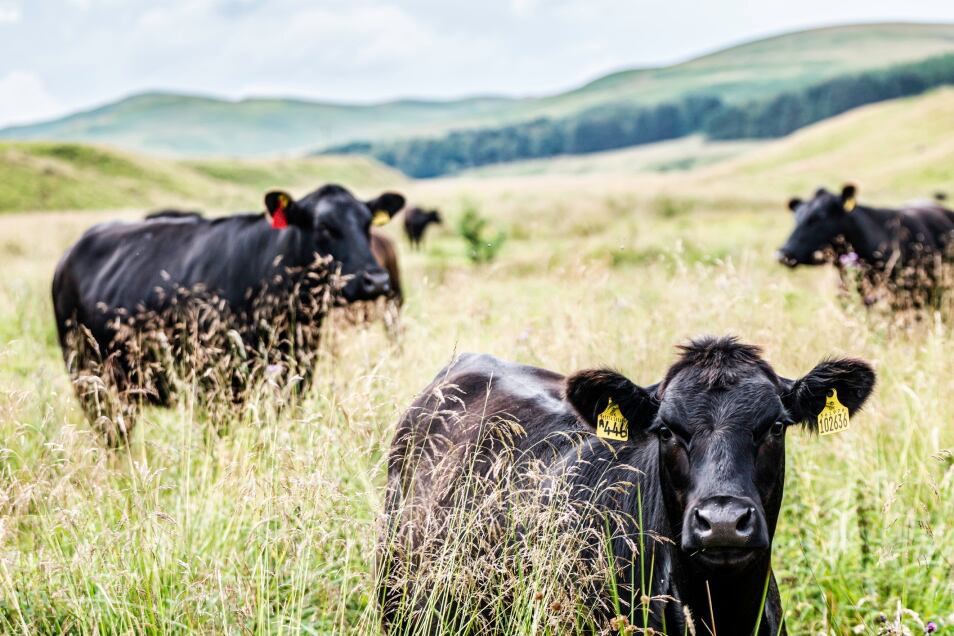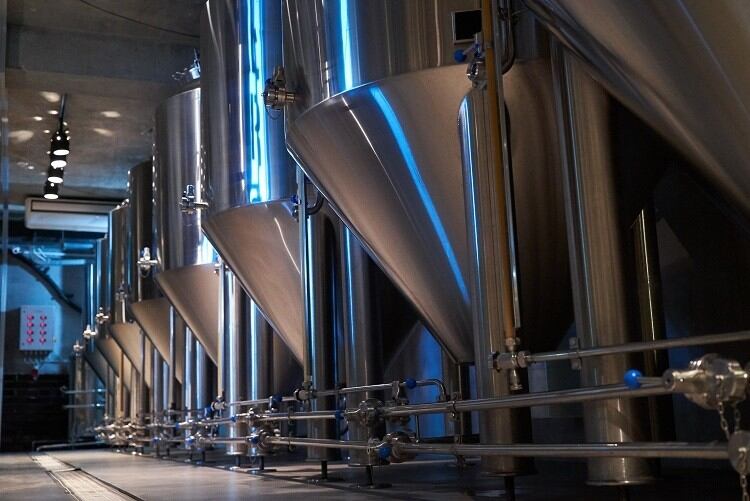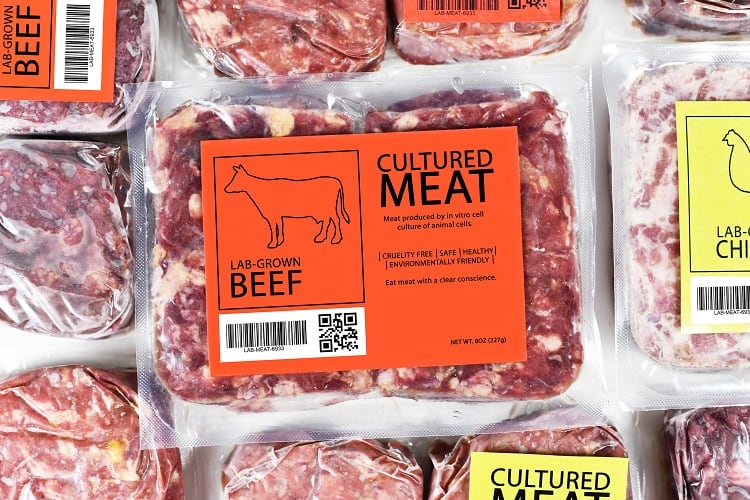Civilisation at work? A victory for consumer choice? Or the chilling rise of Frankenfood?
Eat Just is the US company whose cultivated chicken has just been approved for sale in Singapore, making it the first country in the world to commercialize cell-based meat products. Success in Asia will encourage Europe to follow suit, the company believes.
The product will be used as an ingredient to make chicken nuggets for sale to a Singapore restaurant. Eat Just plans to eventually sell the meat directly to consumers.
The product is made from stem cells taken from a chicken’s feather and put in a nutrient-dense liquid. This is put in a bioreactor where the cells grow and proliferate to produce meat containing fat and muscle.
Eat Just is now in talks with US regulators. “I would imagine what will happen is the US, western Europe and others will see what Singapore has been able to do, the rigours of the framework that they put together,” said the company’s chief executive, Josh Tetrick. “And I would imagine that they will try to use it as a template.”
The news has been hailed a landmark moment by supporters of the nascent cultivated meat sector, who believe it could help overcome the ethical and environmental issues of animal agriculture, while still allowing consumers to enjoy eating meat.

Perhaps its most famous champion is the British environmentalist George Monbiot. In a tweet following the Eat Just news, he called cultured meat “a crucial step towards a kinder, greener world. Anyone who cares about animal welfare, cares about pollution, deforestation, climate breakdown and human health should welcome it.”
For its detractors, though, cultivated meat is an abomination: green-washed fake food and fool’s gold which ignores the many benefits animal agriculture can offer to ecosystems and livelihoods.
Frederic Leroy, Professor of Food Science and biotechnology at Vrije Universiteit in Brussels, for example, regularly argues that the consumption of animal sourced foods is being unfairly scapegoated as a cause of, among other things, a public health crisis, climate change and pandemics.
He believes it is crucial to understand that animals themselves are not the problem, and the vital importance of livestock to regenerative farming.
“There is a reason why animals have been so important to our ancestors: they are excellent at making use of land that is not suitable for cropping and upcycling materials that are otherwise inedible into high-quality foods, offering key micronutrients that are not always easy to obtain from plants,” he recently told FoodNavigator.

Of the Eat Just news, Leroy added: “It is truly a manifestation of hubris to assume that we can replicate the sophistication of livestock animals (and all of the evolutionary fine-tuning involved) in computer-controlled laboratory bioreactors.
"It is no coincidence that all these attempts are aiming at the production of burgers and nuggets, aimed at the fast food sector, as the textural and sensory complexity of -say- a rib-eye or other more wholesome meats is far beyond their reach.
"Moreover, these reactor systems are very energy-intensive and provide none of the ecosystem benefits that well-managed livestock can provide.
“If this approach ever turns out to be successful on a large and affordable scale, which is far from being certain as a lot of the information may be overly optimistic to maintain the interest of investors, there are several dystopian outcomes imaginable. One of them is an even greater control over the food system by a few transnational companies. There is little doubt that, in such a case, nothing less that the destruction of traditional farming and eating will be on the agenda.”
How did European-based cultivated meat companies react to the Eat Just news?
Didier Toubia, Co-Founder and CEO of Aleph Farms:
“This first approval demonstrates cultivated meat is becoming a reality quicker than many might think. It is not a long-term vision anymore, but rather a practical solution to the world's most urgent issues.”
“The technological progress made by cultivated meat companies over the course of 7 years – even since the first cultivated burger that cost $325K to produce – is huge. We congratulate JUST for this trailblazing achievement! As we scale our operations, we achieve key milestones in cost reduction and have paved a clear path towards decreasing one of the significant cost factors of cultivated meat – the growth medium – by 500 times. With our unique go-to-market approach together with agri-food partners, we leverage economies of scale and will reach cost-parity with slaughter-based meat within a few years from launch.”
David Brandes, co-founder and managing director of Peace of Meat:
“The first ever global regulation of a cultured meat under novel foods regulation is a milestone for the industry, expect a range of additional products to be approved in Singapore during 2021
"Regulation in Europe and the US still poses a challenge mainly since their rigid regulatory framework does not correspond to the agile and feedback-loop based working model of food innovators. Adhering to the highest possible safety standards is paramount, however an iterative process along the regulatory pathway would be a great unlock.”
‘A major step forward for the lab-grown meat sector’
According to IDTechEx, a UK-based consultancy, however, Eat Just’s approval in Singapore is a major step forward for the industry.
While investment has poured into the industry, with companies like Memphis Meats, Shiok Meats and Mosa Meat having completed funding rounds in 2020, the industry has faced several challenges that have prevented the release of a commercial product, including high production costs, difficulty in scaling up production, and securing regulatory approval.
That could now change, it reckons. “The safety testing carried out in the approval process is likely to be useful for approval in other regimes and a successful commercial launch in the country may help convince regulators around the world that cultured meat is safe,” it said. “It will likely open the door for more regulatory approvals, both in Singapore and the rest of the world, and could generate a burst of enthusiasm that leads to a major influx of investor funding across the industry.”
The Good Food Institute, a non-profit group that works with regulators and scientists to support the development of alternative proteins including cultured meat, agrees.
“A new space race for the future of food is underway,” beamed its executive director, Bruce Friedrich, after the Eat Just news. “As nations race to divorce meat production from industrial animal agriculture, countries that delay their investment in this bright food future risk getting left behind. The rest of the world should be following Singapore’s lead by funding alternative protein research and working with companies to ensure a rigorous and thorough path to regulatory approval and oversight,” Friedrich said.
Sophie Armour, The Good Food Institute’s European communications manager, told FoodNavigator 'we think it's a few years yet' before cultivated meat is approved in Europe via a Novel Foods application. But her hope now is to get more start-ups and investment in Europe. "Singapore has thrown down the gauntlet and said cultivated meat is going to be part of the future of food and so it's really up to Europe to catch up," she said.
Europe vs Singapore
While Europe has recently assigned its first ever fund for cultured meat and witnessed its first ever M&A activity, the sector in region still lags, she thinks.
“The key difference between Europe and Singapore is that Singapore is really proactively investing in the development of these products and investing in this industry and encouraging start-ups to start there. In Europe we're not seeing the same level of investment from the EU and from governments.”
That's strange, she said, “when you consider it was Europe that produced the first ever cultivated beef burger back in 2013."
There are big differences between Singapore, however. As a small nation with little arable land that imports 90% of its food, Singapore has made local food production a top priority.

In 2019, the Singaporean government set up the “30 by 30” goal, aiming to make the country 30% self-sufficient by 2030 by taking advantage of new food production technologies, such as vertical farming and aquaculture. The Singaporean government has been vocally supportive of cultured meat.
Fears about food sovereignty and security might arguably not be so great in the EU. However, according to Armour, the advantage of cultivated meat is to allow Europe to have more home-grown meat and avoid importing from places like the Amazon to cut down on the environmental impact. "Europe has set ambitious environmental climate targets which it is not going to meet unless we change the food system."
Is cultured meat certain about its environmental credentials?
But what about the potential high energy use and associated carbon emissions? The cells used in Eat Just’s cultured chicken products will be grown in 1,200 L bioreactors. The company has said it will need to move to 10,000-litre or 50,000-litre-plus bioreactors to serve the entire country of Singapore, and eventually bring it to elsewhere in the world.
Armour admitted: "I don't think any technology can claim to be a silver bullet. The difficulty at the moment is that all of the current analyses of the environment impact of cultivated meat are based on predictions and assumptions."
But scaling up will produce much lower emissions and use far less water and land than conventional meat, she said. “It is guaranteed to massively reduce the land, water, feed and the inputs that you need to produce meat from cells so is much less than expansive faming on land. Overall, we think this is a huge step forward in terms of the climate impact of conventional meat."

It also potentially safer, she argues. "These products don't use anti-biotics in there production so it avoids the risk of antimicrobial resistance and it also avoids the risk of things like food borne pathogens because you don’t have the contamination that's coming from the slaughter process.”
Again, this argument is not clear cut. For example, studies have speculated on the potential health benefits and drawbacks of cultured meat.
One study concluded: “Unlike conventional meat, cultured muscle cells may be safer, without any adjacent digestive organs. On the other hand, with this high level of cell multiplication, some dysregulation is likely as happens in cancer cells. Likewise, the control of its nutritional composition is still unclear, especially for micronutrients and iron.”
The unpalatable prices of lab-grown meat
Price will certainly remain a challenge, though. In 2019, Eat Just described production costs of $50 per chicken nugget. Although prices are now likely to be lower, the company’s cultured chicken will still probably be a super-premium product for the first few years.
Again, manufacturers are confident that prices will come down as the industry scales. Aleph Farms, for example, has boldly predicted that the cost of cultured meat will reach parity with conventional meat before meat analogues.
Consumers will gain
All this is bound to exasperate the regenerative agricultural proponents out there, who insist that animals should and must be part of the solution to the climate crisis by, for example, increasing soil carbon sequestration.
According to Armour, however, those promoting lab meat and advocates of regenerative agriculture need not be opponents. The bigger winner will be consumer choice, she said.
"We think of regenerative agriculture advocates very much as allies because we are all working towards ending industrial scale animal farming. There are no silver bullets, and regenerative agriculture alone isn't going to be producing enough to meet the demand. Cultivated meat is just part of basically adding another sustainable meat option that consumers will have.”





